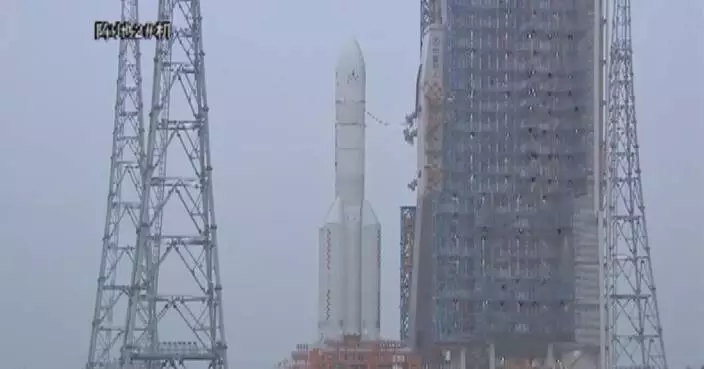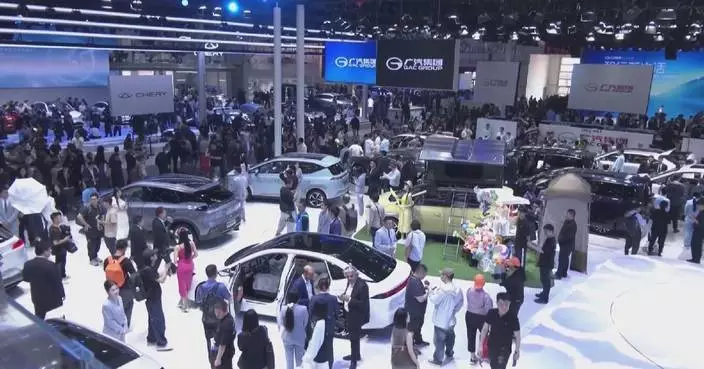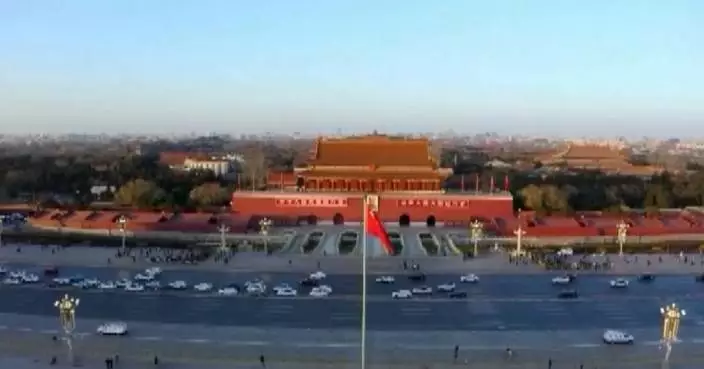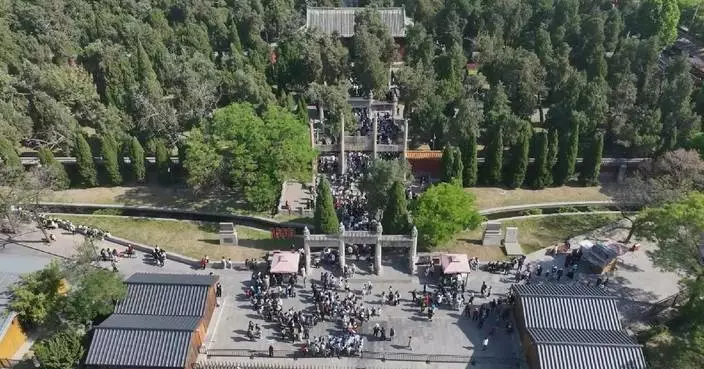Robots that can be controlled by voice and learn independently, machines that automatically recognize defects, systems that reduce downtime through predictive maintenance, and generative artificial intelligence (AI) that is rapidly acquiring the ability to design machines. This year's Hannover Messe 2024 in Germany is all about AI that is heralding a new wave of industrial revolution.
One of the world's most established industrial trade fairs, this year's Hannover Messe opened on Monday with the theme "Energizing a Sustainable Industry" and is showcasing how AI is revolutionizing industrial processes at a breathtaking pace.
As previous years, multinational tech heavyweights such as Siemens, Google, Microsoft, Bosch and Schneider Electric are among the 4,000 or so exhibitors showcasing their latest innovations in AI, robotics and machine learning at this year's fair.
French multinational Schneider Electric brought their latest medicine production line to the event, which features next-generation automation and advanced industrial robotics technology capable of boosting flexibility, productivity and safety in operation.
"During the old days, when we found that something had gone wrong in one specific part of the production line, we had to shut down the entire process, which often led to reduced productivity. Now, we can use AI technology to remove the malfunctioning part from the production line in a quick and flexible way," said Gu Yue, vice president and head of Marketing of Schneider Electric's China and East Asia Operations, in an interview with China Central Television (CCTV).
Rainer Brehm, CEO of Factory Automation at Siemens Digital Industries, is optimistic about the application of generative AI, which he believes will significantly improve machine learning capabilities and take the automation of industrial manufacturing to the next level.
"For me, the highlight of this fair is really using generative AI at manufacturing, at a real machine. You can ask the machine how I can run faster with a higher quality and the machine answers you, where the machine thinks you can optimize. It's applied to a lot of areas, to all machine building, to car manufacturing, to machine building for battery industry, for solar industry, for tire industry, but also in the food and beverage area," he said.
Sustainability is also a key topic at this year's Hannover Messe with exhibitors showcasing technologies for a carbon-neutral industry.
This year's fair lasts till Friday.

AI heralds new wave of industrial revolution at Hannover Messe 2024









